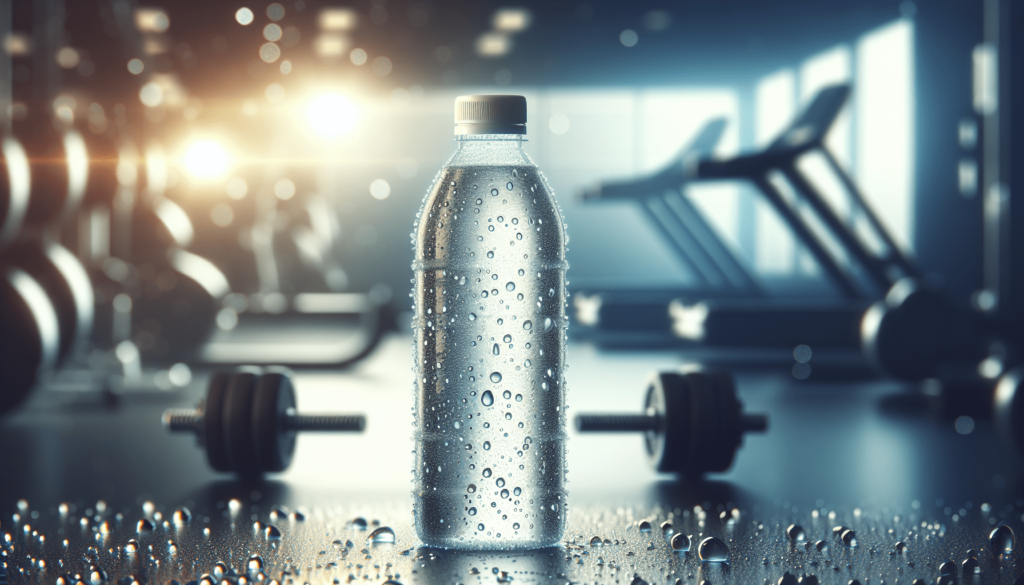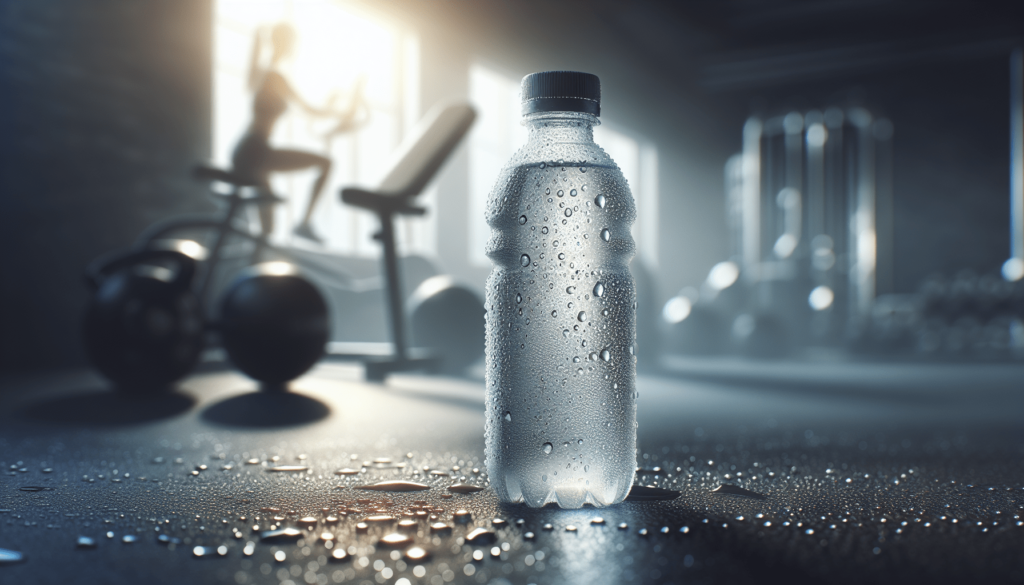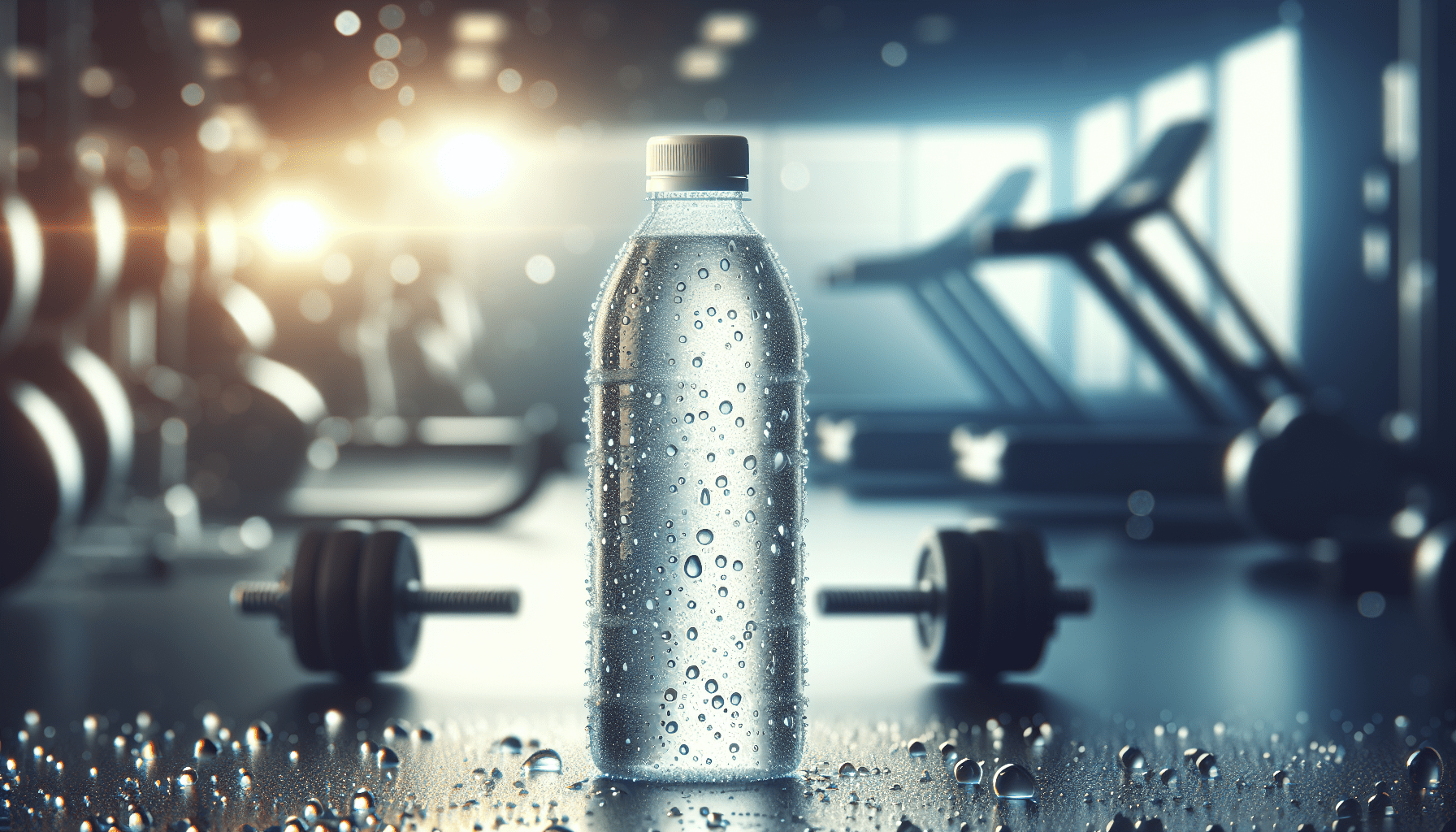What’s the secret ingredient to becoming the superhero of your local gym, the person who seems to have endless energy and glows as if they’ve bathed in the magical waters of fitness heaven? I’ll give you a hint—it’s not a $50 green juice named “Elixir of Life.” Nope, it’s something so simple you’ve been using it as a prop in school science fairs since time immemorial: good old water. And while we all know that drinking water is important, understanding the full impact of hydration on your fitness journey can be something of a mystery. So, let’s pour ourselves a tall glass of H2O and get down to the nuts and bolts of why staying hydrated is the unsung hero of the fitness world.

The Science of Sweat: Why You Turn into a Human Sprinkler
Ah, sweat. The glistening thief of coolness that leaves marks on gym equipment and makes you smell like you took a bath in eau de gym socks. But beyond its slightly embarrassing reputation, sweat is your body’s built-in sprinkler system, engineered by nature to prevent you from spontaneously combusting during your workout.
How Sweat Works
Sweating is your body’s not-so-subtle way of saying, “It’s getting hot in here, so let’s get some of this heat out before you become a puddle.” Your skin is covered in a gazillion tiny factories known as sweat glands, producing this peculiar potion in response to heat or stress. When sweat evaporates from the skin, it magically cools your body down—a bit like when a dog pants or when you pull a pie out of the oven and everyone in the house races to blow on it.
Water’s Role in Sweat Production
Your sweat is composed mostly of water with a dash of salt and other minerals tossed in for flavor—kind of like an unwanted electrolyte cocktail. Staying hydrated is crucial because, without enough water in the mix, your body can’t produce enough sweat. This could lead to overheating, which is about as fun as eating overly spicy food just before a business meeting.
The Hydration-Durability Connection: Keeping Your Muscles Flexible and Steady
Wondering what water does for your muscles? Imagine trying to knead dough without any water—your flour would end up more like powdery, sad sand than glorious bread. Water gives muscles their ability to flex, contract, and do all the wonderful things you expect a muscle to do during your world champion weightlifting routine.
Muscle Contractions and Hydration
Muscles are composed of a large amount of water. Hydration facilitates the exchange of electrolytes necessary for muscle contractions. Without proper hydration, muscle fatigue sets in quicker, and those weights might just laugh at your lackluster efforts in the gym with a cacophony of metallic giggles.
The Thirsty Brain: Why Even Your Brain Hates Dehydration
Now, I don’t know about you, but any time my brain feels parched, it resembles a lazy cat basking in the sun—content to ignore anything that involves effort. Hydration is crucial for mental acuity, which directly affects your motivation and concentration levels during workouts. Dehydration can pounce on you stealthily, and before you know it, you’re staring at your running shoes, trying to remember what they’re called or how they got there.
Cognitive Function and Fluid Intake
Water is the secret ingredient behind neurotransmitter function and cognitive processes. Translation: drinking enough means you can potentially avoid moments of mental haze where you mix up biceps curls with bicycling.
Performance Improvement: Glug, Glug, Gainz
Picture this: you’re running along the treadmill, chasing dreams of a runner’s high that feels as elusive as your car keys after a long day. Did you know that when you’re only slightly dehydrated, your performance can drop by around 20%? Shocking, right? Skimping on water could mean the difference between crushing your personal best and just crushing your hope as you flop down after a subpar run.
When Less is Not More: Effects of Mild Dehydration
Real talk—that nifty little ranking chart you keep in your head of “how hydrated am I” can get confusing. When your body loses as little as 1-2% of its water content, it starts waving tiny red flags. That’s why ensuring each drop counts makes you the kind of sporty bookworm who knows the secret code to unlock human performance levels.

Motivational Hydration Tips: Because We All Forget
Let’s be honest. Remembering to drink water is about as easy as remembering your eighth-grade locker combination. Sometimes it helps to have strategies in place to avoid falling prey to the powerful allure of dehydration.
Hydration Hacks
-
Flavored Water: Sprinkle a few fruits in your water like you’re a wizard in some fruity kingdom. You’ll be more inclined to sip on something that doesn’t taste like boredom.
-
Tech to the Rescue: Download an app to remind you to drink water. Consider it your very own hydration bestie, nudging you when you’ve neglected your liquid loved one.
-
Strategic Bottle Placement: Keep a water bottle next to something you’re always with—your laptop, your yoga mat, or your guilty favorite Snuggie. This creates a Pavlovian response whenever you reach for it.
Crunching the Numbers: How Much Water Do I Need?
If you’ve been around the fitness block, you’ll know that the “drink 8 glasses a day” wisdom ranks up there with old wives’ tales about how smiling too much gives you wrinkles. It turns out the amount of water you need can depend on various factors.
Factors Influencing Hydration Needs
Here’s a quick table to help you understand how much water you might need:
| Activity Level | Suggested Amount of Water |
|---|---|
| Sedentary | 2 liters (around 8 cups) |
| Moderate Activity | 2.5-3 liters (10-12 cups) |
| High Intensity | 3-4 liters (12-16 cups) |
This chart isn’t carved in stone, and you might notice your needs change based on variables like climate, altitude, or the degree of sweat saturation in your gym socks.
Electrolytes: The Invite-Only Component to Hydration
You may not need a master’s degree in sports science to know that Gatorade commercials didn’t invent electrolytes. These minerals, which often come with swirly colors and sporty promises on beverage labels, play a big role in muscle function and hydration.
Why Electrolytes Matter
Electrolytes help the body retain fluids, which is essential after hours of tireless effort that ends with you looking like you’ve just emerged from a swimming pool. Think sodium, potassium, magnesium—you’re not assembling gadgets; you’re enabling your body to perform at peak levels.
The Long Game: Hydration Doesn’t Take a Day Off
You might think that if you’ve been good during the week, it’s perfectly okay to coast along the hydration highway on weekends. Truth is, remaining consistently hydrated is a continuous journey, not a one-time event. Unlike fasting food fads or the occasional juice cleanse, hydration requires attention and dedication most of the time.
Benefits of Long-term Hydration
When your body knows it can rely on a steady intake of fluids, it’s like treating your internal organs to a spa day—they’re likely to perform much better in return. You’ll experience reduced fatigue, improved metabolism, and overall better health—without the spa bill.
Embarrassing Signs That You Need to Drink Water Now
Sometimes, our bodies whisper subtle cues, and by subtle, I mean SIKE—all caps, bold font, complete with sirens. Could be a few signs cropping up indicating you’re in urgent need of the magical elixir known as water.
Classic Dehydration Symptoms
- Dry Mouth: The kind of parched where you suspect you might cough up a sandstorm.
- Fatigue: You might suddenly feel like going for a run is akin to climbing Everest.
- Dizziness: The world doing spin classes around you is a surefire signal.
- Dark Urine: Channeling a shade more “black coffee” than “light lemonade.”
Turn those symptoms into hydration alarms and avoid potential public faux pas, like trying to eat peanut butter without a glass of water nearby.
Hitting the Gym: Hydrate Before, During, and After
Getting your hydration game on point isn’t just about glugging a glass of water right before you hit the bench press, like a last-minute assignment you forgot about. Hydration is a multi-step process.
The Hydration Plan
-
Before Exercise: Start 2-3 hours before hitting the gym with about 17-20 oz of water. Consider it a gentle warm-up toast to your muscles.
-
During Exercise: Sip intermittently during your workout, aiming for about 7-10 oz every 10-20 minutes. Basically, treat it like a coffee break but swap the espresso for water.
-
After Exercise: Rehydrate with about 16-24 oz of water for every pound lost in fluid. A clever way to think about it is water being the bravo performance to your arduous workout.
At this point, you should see why water deserves to be more than an afterthought in your fitness journey. It’s there to renew your superpowers, elevating you into a more energetic version of yourself. So here’s to hydration—invisibly winging you closer to your fitness goals, one sip at a time.
